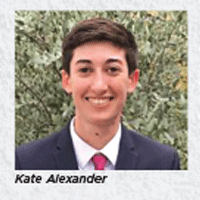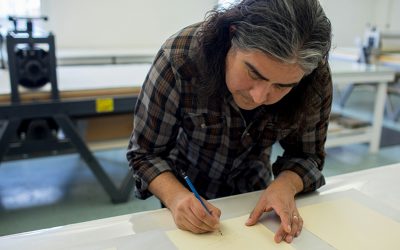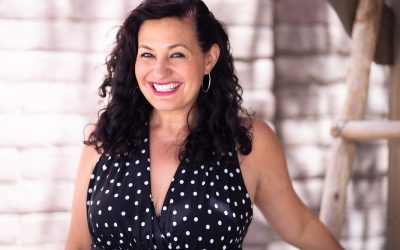THE GAY WEST: FROM DRUG STORE COWBOYS TO RODEO QUEENS
Talk Description: The masculine ideal represented by the American cowboy is variously interpreted by spectators, dancers, musicians, and contestants at gay rodeos and country western dances across the U.S. Examining embodied gender practices within these communities, this talk articulates the sonic, social, and geographical spaces of the gay American West.
 Biography: Kate Alexander received her Ph.D. in ethnomusicology from the University of California, Riverside in 2014. Her research focuses on intersections of whiteness, gender, and sexuality in North American music and dance communities, including Cape Breton’s traditional Scottish culture, and her current research on American LGBTQ country western dance and rodeo networks. Her work has been published in journals such as MUSICulturesand the Yearbook for Traditional Music. She is an Assistant Professor in the Honors College at the University of Arizona, where she teaches interdisciplinary courses on sound, music, visual art, and culture.
Biography: Kate Alexander received her Ph.D. in ethnomusicology from the University of California, Riverside in 2014. Her research focuses on intersections of whiteness, gender, and sexuality in North American music and dance communities, including Cape Breton’s traditional Scottish culture, and her current research on American LGBTQ country western dance and rodeo networks. Her work has been published in journals such as MUSICulturesand the Yearbook for Traditional Music. She is an Assistant Professor in the Honors College at the University of Arizona, where she teaches interdisciplinary courses on sound, music, visual art, and culture.
Jacobsen signs pre-completion contract for “The Creative Ethnographer’s Notebook”
Jacobsen signs pre-completion contract for "The Creative Ethnographer's Notebook" (co-authored with Melisa Cahnmann-Taylor) a book for artists, ethnographers and qualitative researchers. How and when do anthropologists, educators, sociologists and other social...
Pulitzer winning alumnus Raven Chacon to debut new composition, perform
Pulitzer winning alumnus Raven Chacon to debut new composition, perform Tickets available for performances in Santa Fe, Albuquerque By Mary Beth King August 11, 2022 Pulitzer Prize winning Diné composer and sound artist Raven Chacon, who earned his Bachelor of Arts...
The American Prize in Vocal Performance—Women in Art Song and Oratorio, 2022 Winner
The American Prize National Nonprofit Competitions in the Performing Arts, David (Volosin) Katz, founder and chief judge, is honored to announce the winners, runners-up, and honorable mentions of The American Prize in Vocal Performance—women in art song and oratorio,...



